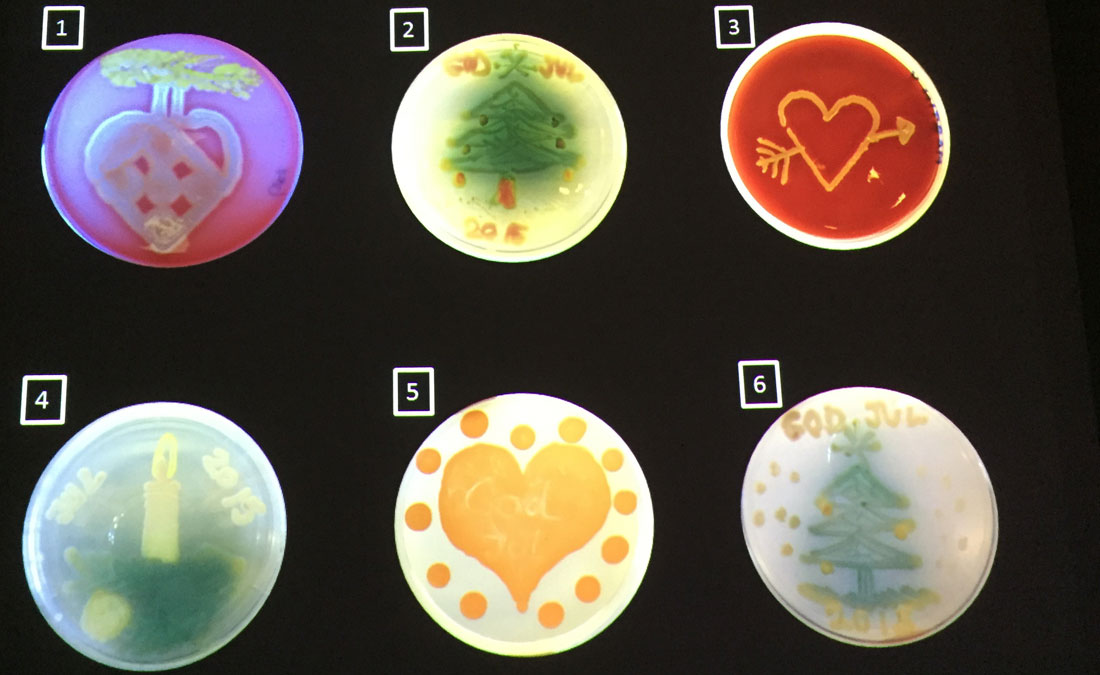Veterinary Public Health
In our research, we investigate characteristics and transmission of zoonotic bacterial pathogens, antimicrobial resistance and bacteria in foods in a One Health perspective.
We seek to produce knowledge that will lead to better food safety and control of zoonotic diseases and antimicrobial resistance in a global context.
We provide pre- and post-graduate teaching for veterinary and other students and specialized course training for international participants within food safety, antimicrobial resistance and zoonoses.
Research group leader
Professor Anders Dalsgaard
Stigbøjlen 4, building 1-20
1870 Frederiksberg C
Email: adal@sund.ku.dk
Telephone: 3533 2720
Secretariat
Nora Ottens
Email: noo@sund.ku.dk
Reservoirs and transmission pathways of zoonotic and environmental pathogens – Six out of every 10 known infectious diseases in people can be spread from animals. We aim to study characteristics and zoonotic links of bacterial pathogens found in livestock, fish, insects, foods, the environment and people. Climate change implications on pathogen transmission, e.g. cholera and other waterborne Vibrio infections, between humans and the environment are investigated. We apply whole genome sequencing and phylogenic studies to establish epidemiological relationships.
Antimicrobial resistance is a silent epidemic globally. We aim to explore mechanisms and transmission of resistance, including to biocides, in a One Health context as well as the history of antimicrobial developments. We use traditional and advanced omics tools to test and measure the impact of context-based interventions for the reduction of antimicrobial use and resistance in veterinary and human sectors mainly in low and middle-income countries.
Food quality and safety. We study functional properties of lactic acid bacteria, including their antagonistic properties, their distribution in the environment and application in food products and aquaculture. We also explore the applicability of bacterial metabolites to assess shelf-life of foods and we examine the role of food control to ensure food quality and safety.
DRYAP: How the antibiotic drug pipeline ran dry (https://www.emptypipeline.org/).
Funding: The Norwegian Research Council.
FOODINDEX: Amines as objective index for safety and quality of Chinese and Danish food products.
Funding: SDC - The University Partnership Denmark-China.
Developing an early warning and response system for climate-sensitive waterborne disease outbreaks in Benin. 2023-2027.
Funding: International Development Research Centre (IDRC), Canada. https://www.idrc.ca/en/CLARE .
I-CRET. Interventions to decrease carbapenem resistance Enterobacteriaceae colonization and transmission between hospitals, households, communities, and domesticated animals in Vietnam. 2022-2026.
Funding: JPIAMR-ACTION Joint Transnational call with funding from Innovationsfonden Danmark. https://www.jpiamr.eu/projects/i-crect/
VIDA-PIG II. Health and Antibiotics an Vietnamese Pig Production (VIDA-PIG) project phase II. 2023-2025.
Funding: Danish Fellowship Centre/Danish International Development Assistance.
Climate-related implications of the Baltic Sea on the increasing incidence of Vibriosis in Denmark during summers
Project period: 2022-2023.
Funding: European Society of Clinical Microbiology and Infectious Diseases (ESCMID).
Reservoirs and transmission pathways of zoonotic and environmental pathogens
-
Our bioinformatics studies have shown substantial increases in Vibrio infections in Denmark due to sea surface warming (http://doi.org/10.3201/eid2903.221568)
-
Multi-drug resistant extra-intestinal pathogenic E. coli and non-typhoid Salmonella were shared between poultry and humans in Brazil, findings of importance to food safety, public health and international trade of Brazilian poultry products (https://doi.org/10.1016/j.vetmic.2022.109372).
Antimicrobial resistance
- Discovery in the African Great Lakes region of an emerging clade of pandemic Vibrio cholerae resistant to ciprofloxacin, a critical drug in treatment of cholera (https://doi.org/10.3201/eid2901.220641).
- The spread of ESBL genes from pigs to pig farmers in Vietnam was mediated by mobile genetic elements (https://doi.org/10.3389/fmicb.2021.629139).
- We have highlighted the challenges in the discovery process of new antimicrobial compounds (https://doi.org/10.3389/fmicb.2022.908336).
Food quality and safety
- We have demonstrated the feasibility of using a handheld device for cadaverine detection as an objective parameter for microbial quality of meat and fish (https://doi.org/10.1016/j.meatsci.2022.108876).
- We have demonstrated that successful communication of food inspector rankings depends both on whether this is done as text or in the form of Smileys and that the public in Denmark and Finland differ in their interpretations (https://doi.org/10.1016/j.foodcont.2022.109382).
- We have demonstrated the non-pathogenicity of selected non-enterica Salmonella strains found in fish products from Tanzania imported into the EU markets and needs to update in the existing food legislation in order to avoid food loss (https://doi.org/10.1038/s41598-022-08200-5).
Group/project members
Internal researchers
| Name | Title | Phone | |
|---|---|---|---|
| Dalsgaard, Anders | Professor | +4535332720 | |
| Erickson, Vera Irene | PhD Fellow | +4535325009 | |
| Hounmanou, Yaovi Mahuton Gildas | Assistant Professor | +4535326882 | |
| Leisner, Jørgen | Associate Professor | +4535332768 | |
| Martinenghi, Laura Daniela | PhD Fellow | +4535325480 | |
| Skive, Bolette | Assistant Professor | +4535320810 | |
| Tang, Taya | PhD Student | +4535323949 |
Guest researchers and students
| Navn | Titel | Telefon | |
|---|---|---|---|
| Erkison Ewomazino Odih | Visiting fellow | ||
| Bui Thi Mai Huong | Visiting fellow | ||
| André Saidenberg | Visiting fellow |


